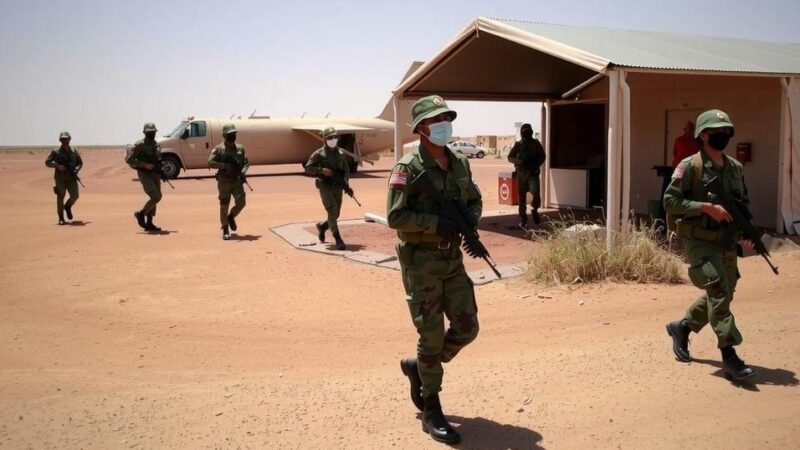On October 27, 2024, Egypt proposed a two-day ceasefire in Gaza, aiming for the release of four hostages from Hamas in exchange for Palestinian prisoners held in Israel. President Abdel Fattah el-Sisi intends this initial truce to lead to further discussions on a permanent ceasefire within ten days. While Hamas may consider the proposal, they assert that any agreement must lead to an end to the conflict. Negotiations involve key international players, with a critical focus on the implications this ceasefire may have for regional stability.
On October 27, 2024, Egypt proposed a two-day ceasefire in Gaza aimed at facilitating the release of four hostages held by Hamas in exchange for Palestinian prisoners held in Israel. Egyptian President Abdel Fattah el-Sisi emphasized that this proposal endeavors to advance the situation and intends for discussions on a permanent ceasefire to commence within ten days following the brief truce. While Israel and Hamas have yet to respond officially, a Palestinian official indicated that Hamas is likely to consider the new offers, albeit with the firm expectation that any agreement must conclude the conflict and lead to the withdrawal of Israeli forces from Gaza. Israel, on the other hand, maintains that it cannot terminate military operations that could potentially allow Hamas to recuperate after sustaining considerable losses in recent months. This announcement coincided with a meeting in Doha involving Mossad Director David Barnea and CIA Director William Burns alongside Qatari Prime Minister Sheikh Mohammed bin Abdulrahman Al Thani, marking the first substantive ceasefire and hostage negotiations in two months. Egypt and Qatar have historically played pivotal roles as intermediaries in dialogues between Israel and Palestinian factions, notably throughout the Gaza conflicts in 2014 and 2021. In November 2023, they facilitated a temporary pause during which Hamas released 81 Israeli hostages in exchange for 240 Palestinian detainees in Israeli jails, a ceasefire that ultimately collapsed in December due to disagreements regarding the status of remaining captives. Presently, out of over 250 hostages taken by Hamas on October 7, 2023, 101 individuals are still believed to be held captive. U.S. Secretary of State Antony Blinken acknowledged uncertainty regarding Hamas’s readiness to engage in negotiations, with expectations to gather further information in the forthcoming days.
The situation between Israel and Hamas has been characterized by an ongoing conflict that has included numerous hostilities and attempts at peace negotiations. Egypt has long served as a mediator in such situations, leveraging its geographical and historical positioning to foster dialogue. Following the intense volatility resulting from hostilities that escalated in late 2023, the current proposal for a temporary ceasefire by Egypt seeks to establish a pathway toward more substantive peace discussions. This proposal comes amidst a broader geopolitical landscape where various international actors, including the United States and Qatar, are heavily involved in seeking to stabilize the region.
The proposed two-day ceasefire by Egypt reflects ongoing efforts to mediate and potentially resolve the hostilities between Israel and Hamas. While there is cautious optimism regarding Hamas’s willingness to engage, the significant complications surrounding the release of hostages and broader security concerns for Israel continue to pose substantial hurdles. As discussions evolve, the role of mediators such as Egypt and Qatar will remain critical to navigating this complex landscape.
Original Source: www.fdd.org







